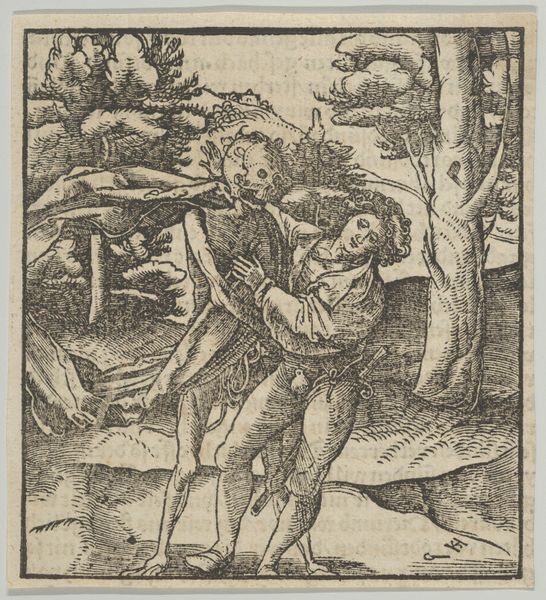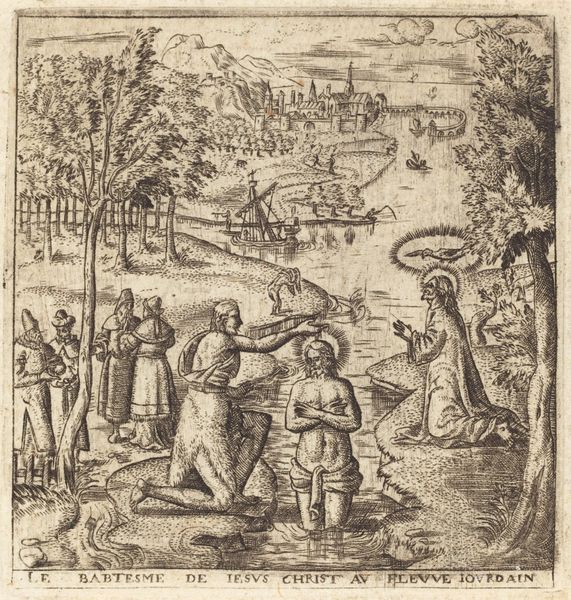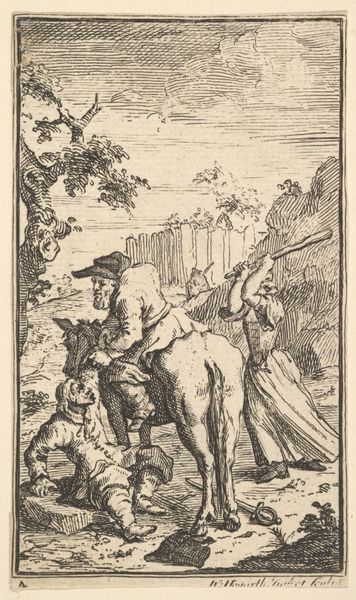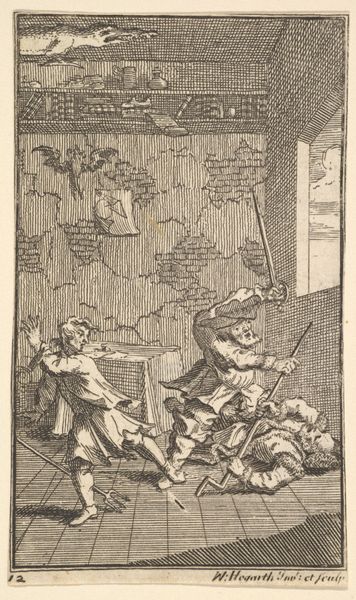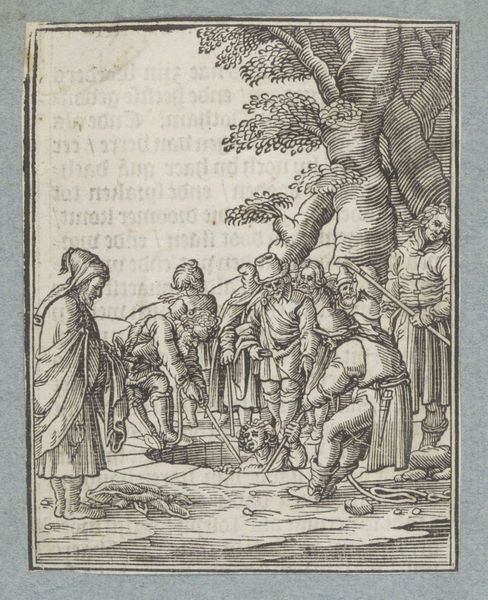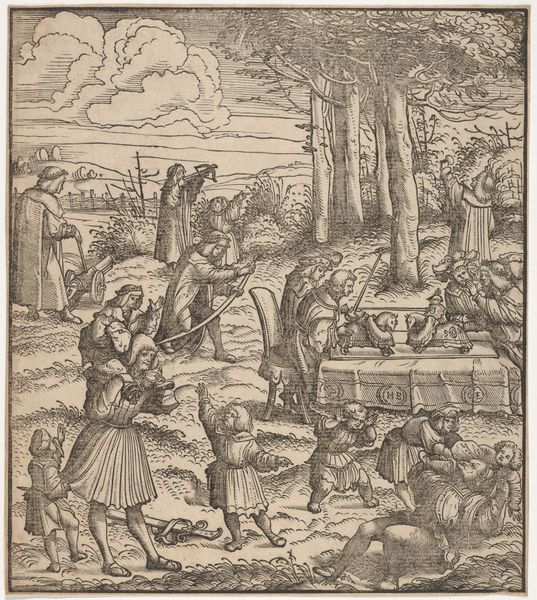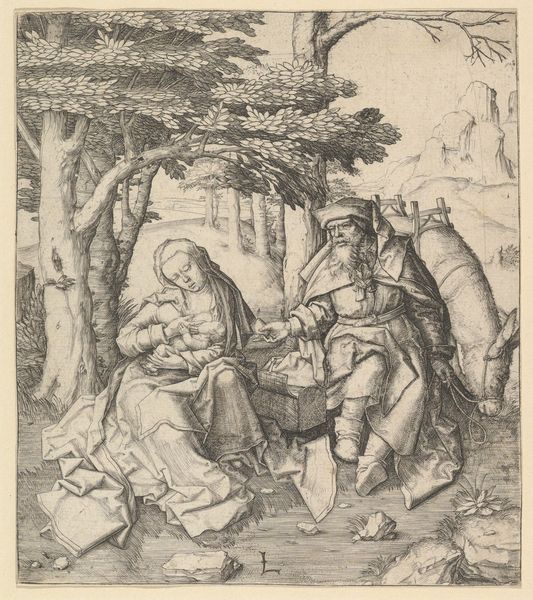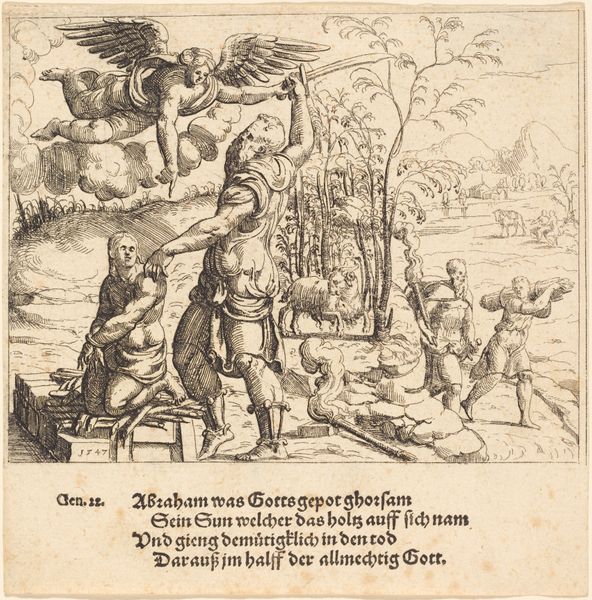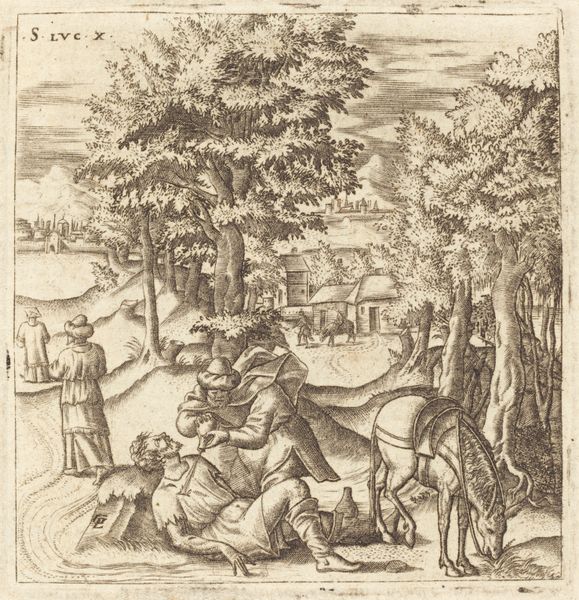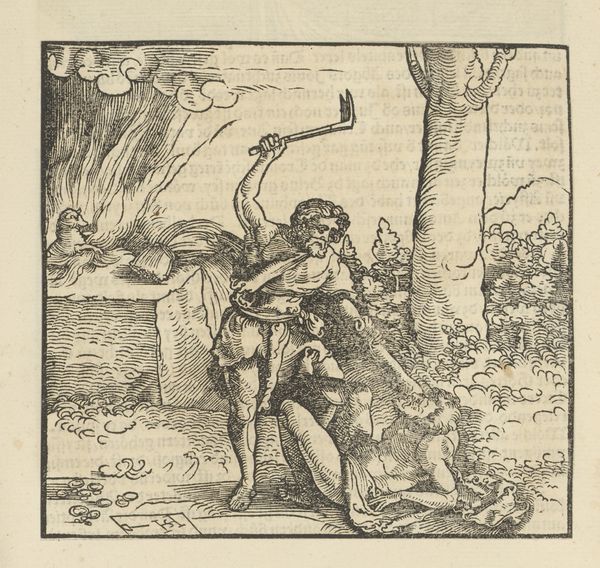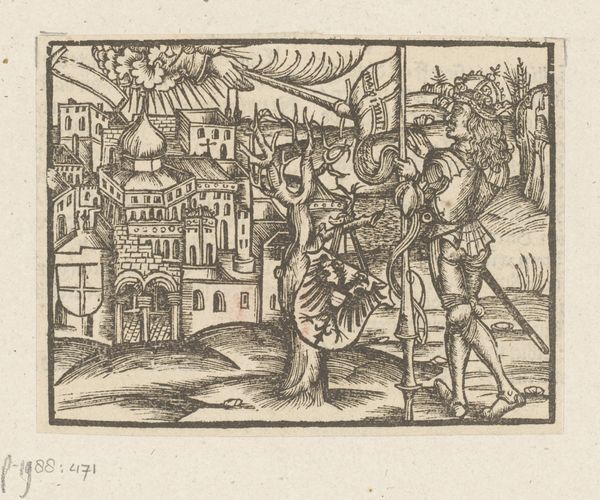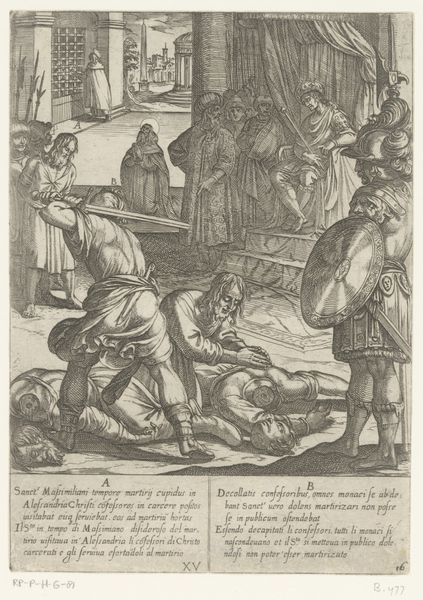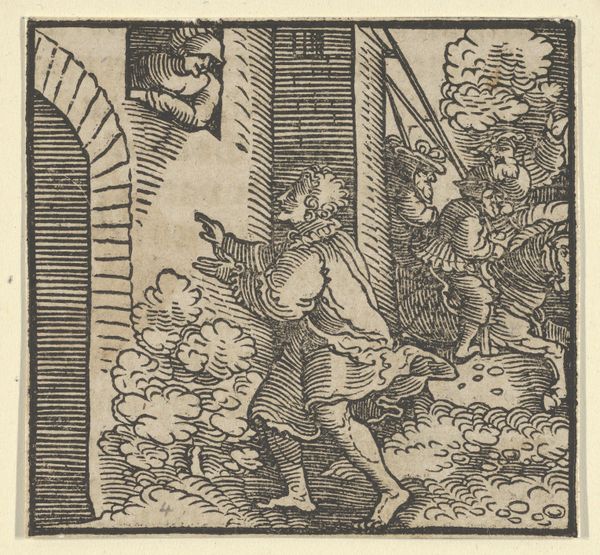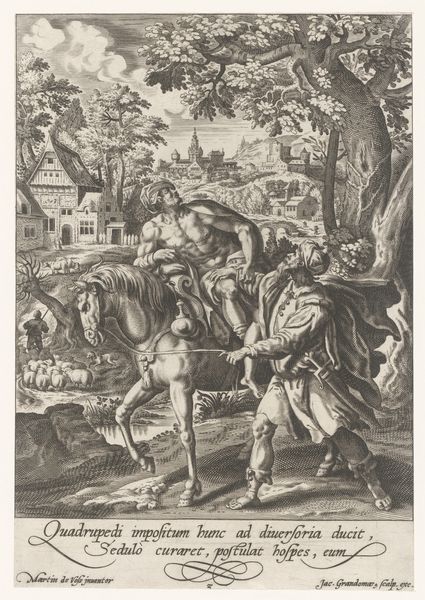
A Man Crossing a Small Bridge, from Hymmelwagen auff dem, wer wol lebt... 1517
0:00
0:00
drawing, print, woodcut
#
drawing
# print
#
landscape
#
woodcut
#
northern-renaissance
Dimensions: Sheet: 4 3/8 in. × 4 in. (11.1 × 10.2 cm)
Copyright: Public Domain
Hans Schäufelein created this woodcut titled "A Man Crossing a Small Bridge" around 1520, in Germany. It comes from a book called "Hymmelwagen auff dem, wer wol lebt…," which translates to "Heavenly Chariot for those who live well." This simple scene carries a lot of cultural weight. During the Reformation, woodcuts became powerful tools for spreading ideas, and the image of a man crossing a bridge could be a metaphor for navigating the turbulent waters of religious and social change. Notice his clothing and the sword; these details reflect the era's fashion and perhaps suggest the need for protection in uncertain times. To understand this work fully, we might consult historical texts, religious pamphlets, and social histories of the period. The meaning of this artwork is contingent on its historical context and an understanding of the role art played in shaping public opinion during a period of immense change.
Comments
No comments
Be the first to comment and join the conversation on the ultimate creative platform.
